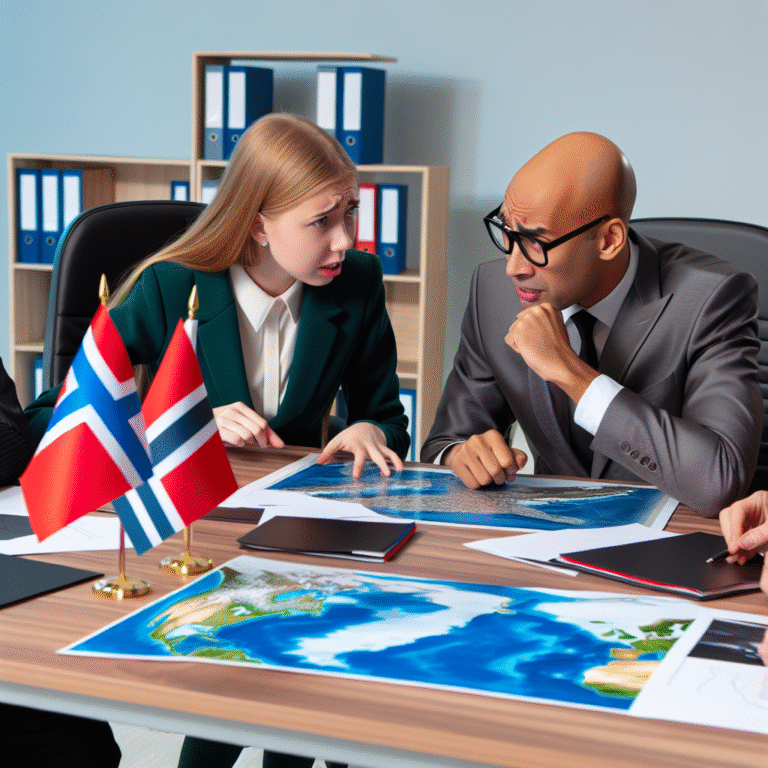A Cautionary Tale in Maritime Collaborations
“Overall, this is a tedious situation. For both our Norwegian partner, Bengt Are Korneliussen, and for Royal Greenland, I wish I could have avoided this entirely.”
This candid assessment comes from Preben Sunke, managing director of Royal Greenland, as he reflects on the recent ruling by the Hålogaland Court of Appeal in Tromsø, Norway.
The decision has significant consequences for Korneliussen, a shipowner based in Tromsø. He now faces the permanent loss of his business license, which also strips him of the right to fish for snow crabs. With the cancellation of quotas, Royal Greenland finds itself with a fractured partnership, concluding that the snow crab venture has effectively reached its end.
Reports suggest that Royal Greenland has incurred substantial financial setbacks—estimations range from tens of millions to potentially over a hundred million—not far removed from what was touted as an ambitious Greenlandic-Norwegian collaboration.
“We are now beginning the process of winding down our collaboration with Korneliussen and his shipping firm, Maniitsoq,” admits Sunke. “The prospects for reviving our fishing operations are bleak.”
Financial Struggles
Since 2017, Royal Greenland has played a crucial role in financing Maniitsoq AS, which is wholly owned by Korneliussen. The shipping company had secured snow crab fishing quotas in the Barents Sea until 2024, providing the catch directly to Royal Greenland.
However, the partnership has been marked by financial loss for Royal Greenland. Earlier this year, the company revealed in its 2024 accounts that it had written down nearly DKK 60 million related to its involvement with Maniitsoq. Furthermore, Maniitsoq’s own accounts indicate it owes Royal Greenland nearly 200 million Norwegian kroner, approximately 130 million Danish kroner.
When pressed, Sunke refrains from disclosing specific figures regarding outstanding receivables from Maniitsoq.
Earlier this year, Korneliussen lost a court battle against the Norwegian state, which ruled unfavorable against him at the Nord-Troms and Senja Tingrett, the lower court. Following that, his appeal to the Court of Appeal in Tromsø was also dismissed in August.
Continuing Legal Battles
Founded in 2015, Maniitsoq A/S became involved in snow crabbing after acquiring the vessel “Arctic Opilio” in 2017. Korneliussen’s company was significantly reliant on Royal Greenland, which not only extended loans but also ensured that all catches were delivered to them, according to the ruling from the Hålogaland Court of Appeal.
Norwegian fisheries authorities have flagged the relationship as problematic, suggesting that while Korneliussen is the official owner, he lacks real control over Maniitsoq. They have described the ownership structure as pro forma, indicating that Royal Greenland exerted the actual influence over the company—a serious violation of Norwegian law.
When asked about how Royal Greenland plans to manage its losses, Sunke remained tight-lipped, highlighting the delicate situation without specifying figures.
“If Maniitsoq cannot achieve an acceptable sale price for the vessel, we might explore alternative uses for it within our fishery operations,” he noted.
Assessing Future Directions
In response to the predicament, Sunke acknowledges that there were flaws in the operational model established under Korneliussen’s guidance. “In hindsight, we could have approached this differently, perhaps as a 40 percent co-owner from the get-go, ensuring compliance with the authorities’ standards,” he reflects.
Despite the significant losses tied to this venture, Sunke remains optimistic about Royal Greenland’s future. “We’re an internationally oriented company, and we will continue to seek opportunities abroad,” he asserts.
Looking ahead, the company plans to channel its investments primarily towards enhancing its numerous Greenlandic facilities, ensuring that Royal Greenland remains a competitive player on the global stage.
